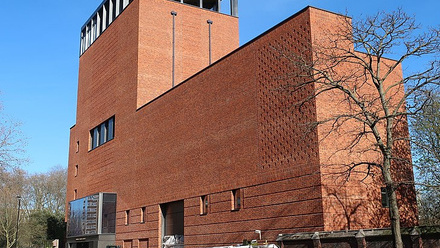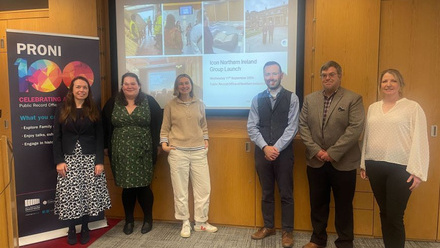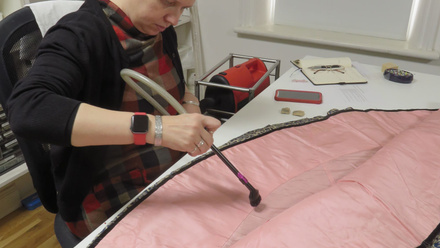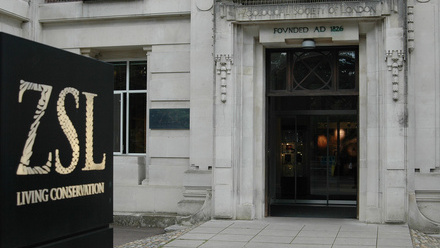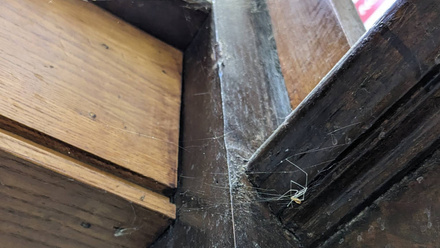The Journal of the Institute of Conservation is inviting submissions for a special issue focused on the intersection of conservation and care ethics. This issue will aim to explore how conservation practices are being reshaped or strengthened through caring approaches.
Editor: Jonathan Kemp
Guest Editor: Hélia Marçal
Conservation has long been tempered by medical metaphors, with terms such as condition, diagnosis, treatment, or preventive and remedial conservation prevalent in its discourse. However, nowadays we are witnessing a fresh reading of care concerning conservation, mainly through engagement with the bourgeoning field of care ethics.
This Special Issue hopes to take stock of the entangling of conservation and care ethics to discuss the ways in which conservation is being or can be transformed or consolidated as a caring practice. Here we are considering conservation in the most capacious sense of the term, to include all forms of practice that contribute towards the conservation of cultural manifestations, such as collection management, community interventions, or policy-making, to mention a few.
With this Call we start from the five phases of social and health care proposed by the feminist scholar Joan Tronto in Caring Democracy: Markets, Equality, and Justice (New York University Press, 2013):
caring about, or recognizing caring needs in the first place; caring for, or assuming responsibility for caring; care-giving, or the hands-on work of caring (…) care-receiving, that is, being responsive to the ways in which the caring processes either have or have not met the initial needs (…), [and] caring with, or thinking about the effects of multiple care processes on trust and respect. (Tronto 2013, 148)
Arguably conservation mirrors some, if not all these phases of care. After all, conservation is grounded in caring about cultural heritage and heavily invested in care-giving and care-receiving practices of various kinds.
Caring-with is different in that it concerns the relational nature of care, which is bound to ethical-political processes, some of which are extremely hard to characterise or even discern. For Tronto, uncovering the relationships that support care is essential to make care more democratic and just:
Charting the flow of caring through these processes is a first step toward making them more democratic (…). To what extent do practices of care permit caregivers and care receivers to understand the entire process? (Ibid.)
At stake here are not only the complex ways different agents – including institutions - are involved in conservation-as-care and the impact of those dynamics in the ways in which physical, mental, emotional (and everything in-between) labour is recognised and distributed, but also how conservation performs and has performed in the politics of care and vice-versa.
For this special issue of JIC, we seek submissions that rehearse the relationships conservation-care in their most expansive forms.
Topics of interest include (but are not limited to)
- Community participation in conservation practices
- Conservation between the communal and the individual
- Conservation diplomacy in times of conflict
- Conservation labour
- Democratic decision-making in conservation
- Ethics of restitution and repatriation
- Gender and conservation
- Heritage regimes and conservation
- Historical perspectives on nation-building and conservation
- Justice and conservation
- Race and racialisation and conservation
- Relationality in conservation practices
- The impact of institutional dynamics in conservation work
- The uses of the term 'care' to define conservation work across historical periods, cultures, and specialisms
- Wellbeing in conservation work
All those directly and indirectly involved in the preservation of cultural heritage and who identify as emerging professionals are encouraged to contribute to this special issue of the Journal. The Journal seeks to represent the diversity of views of those involved in the practice, theory, and politics of conservation and welcomes scholarly treatments, research and case studies that encompass themes relevant to the special issue. We will support you to develop your article through the peer review process and mentorship opportunities will be available to first-time authors.
Consideration will also be given to articles that take the form of a conversation or an opinion piece.
Submit Your Abstract
Potential authors are invited to submit a short (100-250 word) Expression of Interest/synopsis for consideration by the Editorial Panel by the 15 January 2025 to: [email protected]
Selected authors will be informed in early March 2025. Full articles are expected by July 2025.


